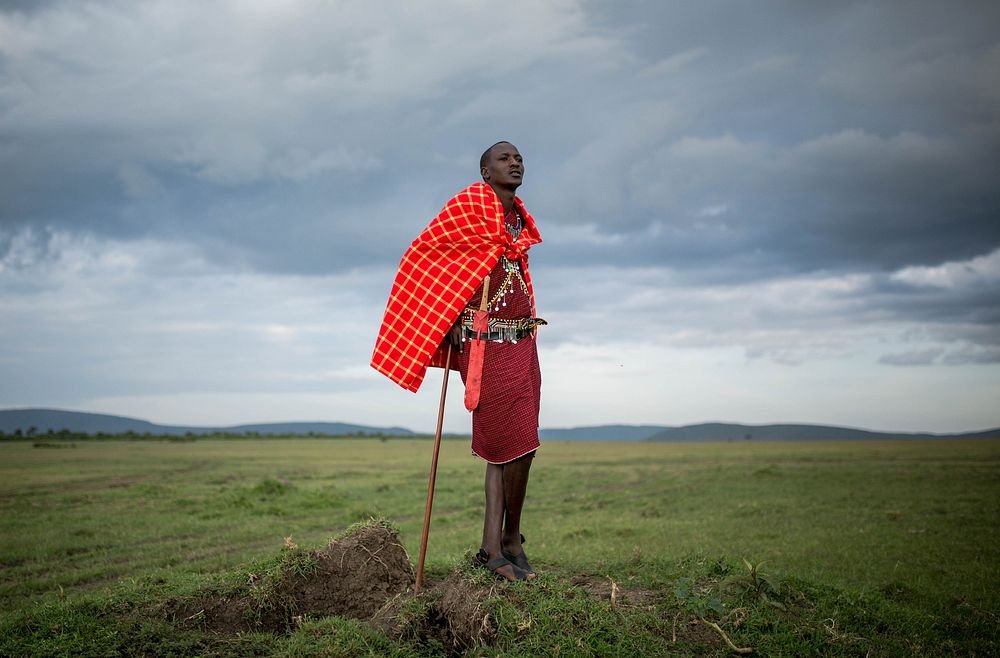
What to Expect When Visiting a Maasai Village in Tanzania
Visiting the Maasai village Tanzania provides a rich and captivating cultural experience, giving you an understanding of one of the most prominent tribes in Africa. The Maasai are semi-nomadic people known for their lively attire and unique customs. They have a close relationship with their land and livestock. Maasai Village Tanzania* tour is more than just a tourist rendezvous; it bridges you to Africa’s most colourful and distinctive culture. The Maasai tribe Tanzania has always been associated with a semi-pastoral lifestyle and a culture tightly bound to their natural resources. Truly, you will learn all about their daily food habits, their homes, the intricacies of their beadwork, and some interesting rites that are practised by them.
From their cheerful musical performances, dancing, and distinctive attire, one can easily tell that the culture supports togetherness. Even though the Maasai people still live as their ancestors did, you will also discover their flexibility and openness to new changes that surround them. Today’s architecture, as well as remnants of days gone by, creates an unforgettable trip to a Maasai village Tanzania and gives you an added value understanding of culture in the preservation of Africa’s historical past. Here are some things you can expect on your visit to Tanzania Maasai.
Warm Reception
On arriving, Maasai villagers usually greet visitors with traditional songs and dances. The performance usually consists of energetic jumping, rhythmic chanting, and lively displays of their traditional clothing and beadwork. This kind of welcome lays a tone for a pleasant and respectful cultural exchange.
Insight into Maasai Lifestyle
The visit usually consists of a guided Maasai village tour, known as a boma. The boma has various small, circular huts made of mud, sticks and cow dung arranged in a protected covering. During the tour, you will learn about:
Diet: The diet of the Maasai people is quite simple and rely on their livestock only. It mainly consists of meat, milk and occasional blood from their cattle [for ceremonies or nutritional purposes]
Livestock: Cattle are seen as a measure of wealth and social status, even used in trades and rituals of the Maasai people
Clothing: Bright red shukas (traditional robes) and complex beaded accessories such as necklaces, bracelets, and earrings which have cultural and symbolic importance.
Participation in Daily Activities
Visitors are usually invited to take part in daily activities, such as
- Milking cows or learning how to take care of them by taking them to grass fields for grassing
- Building huts by using traditional methods and also helping with the repair of already-made huts
- Observe the traditional cooking methods used by Maasai people and take part in food preparations
- Take part in beading workshops and learn how to make necklaces, bracelets, or earrings.
Beading workshops to make jewellery such as necklaces and bracelets, is an important part of Maasai culture.
Traditional Ceremonies
If your visit to Maasai Village Tanzania clashes with a special occasion, you might be able to witness some traditional ceremonies These rituals and ceremonies serve as milestones which mark the important stages of life, maintain community bonds and tribute to their ancestors and beliefs
- Rites of passage: This usually includes circumcision rituals for boys, it is a sacred ritual which indicates the formal shift from boys into warriorhood.
- Marriage ceremonies: marriages in the Maasai tribe Tanzania are celebrated with fancy dances and feasts. Cattle, goats, or sheep are given as a bride price, which represents the coming together of families.
Learning About Maasai Social Structure
Maasai have a unique social hierarchy, which is usually explained during visits:
Elders: Well regarded for their wisdom and decision-making role
Warriors [morans ]: Young men who are usually trained to protect the community and the livestock
Women: They are in charge of domestic chores, childcare, and hut-building
Understanding these roles showcases the combined approach of the community to their life
Shopping for Handicrafts
Many Maasai villages give you a chance to buy handmade crafts such as
- Beaded Jewellery which mainly comprises Necklaces, Bracelets and earrings
- Wooden carvings: hand-made wood figures of lions giraffes, or elephants
- Decorative item
Buying these crafts not only helps in sustaining the local economy but also allows you to take home an item of their culture.
Interaction and Q&A
Most of the village tours cover the time for interaction with the local people. You can ask questions to the Maasai people about their traditions, beliefs and how they adjust themselves to modern challenges such as education, health care and climate change. Many Maasai people now balance traditional practices with modern influences and they are usually open to talk about this dynamic.
A Mix of Tradition and Modernity
While Maasai are well known for preserving their traditional practices, there are also many signs of modern influences in the Maasai villages such as cell phones, solar panels, or education programs. These things show that the Maasai community is quite adaptable and while safeguarding their heritage they have managed to adjust to the demands of the changing world .
CONCLUSION
A cultural trip to a *Maasai village Tanzania* is characterised by learning, engagement, and authenticity. Receiving guests with warmth and accompanied by cultural performances such as singing and dancing opens an opportunity for a significant share of experience. Tourists learn about the day-to-day existence of the Maasai tribe Tanzania, including what they eat, what they wear, and the fact that their economy is largely based on animal farming. Duties that enable them to be involved in daily activities—for example, milking cows, constructing huts, or being involved in beading workshops—make them easily appreciate their culture.
In conclusion, touring a Maasai village Zanzibar or any other Maasai community is not just an enrichment of knowledge about their culture; it is an appreciation of their spirit, of existence in the face of adversity, of the dignity that comes with indigenousness, and of the bond that human beings share with their environment. This is truly an unforgettable experience that exposes you to one of the most famous communities in Africa.




